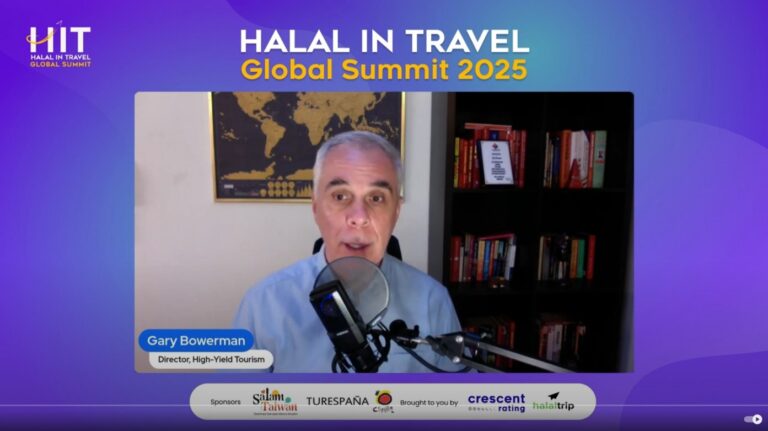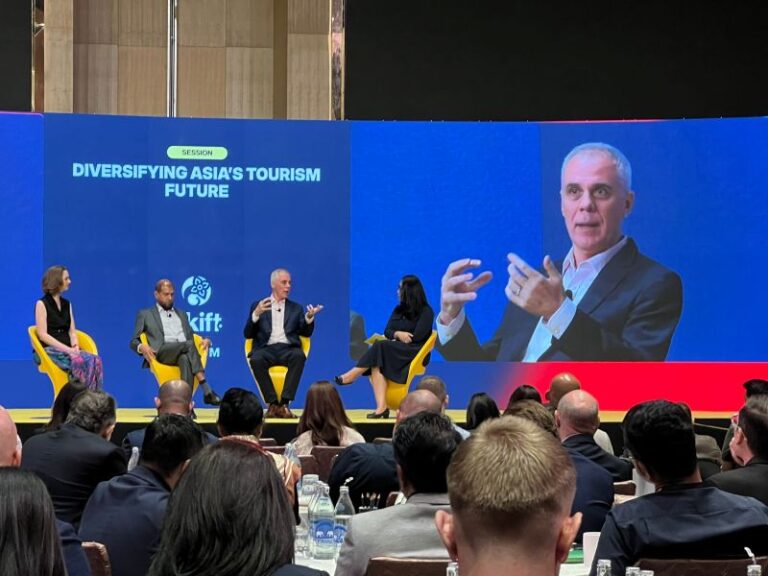Malaysia’s Digital Nomad Moment: Insights from Gary Bowerman on BFM 89.9
On a recent episode of BFM 89.9’s “Enterprise Explorers,” host Richard Bradbury interviewed Gary Bowerman, Co-Founder of High-Yield Tourism. They discussed a transformative trend in global mobility and local economies: the rise of the digital nomad and its implications for Malaysia’s future.
The conversation was both thoughtful and forward-looking, examining Malaysia’s position in the rapidly evolving landscape of remote work. They proposed a framework for how the country could capitalize on this moment; wisely, sustainably, and inclusively.
Redefining the Digital Nomad: More Than Just a Laptop on a Beach
Bowerman began by addressing a critical distinction often blurred in policy discussions and media: the difference between digital nomads and remote workers.
“Digital nomads are a different breed,” he explained. “They consistently move from place to place, leading a lifestyle driven by mobility. In contrast, remote workers may work from home or a fixed location with occasional travel; they are not necessarily committed to a nomadic rhythm.”
Understanding this nuance is crucial for developing effective policies, visas, infrastructure, and marketing campaigns. For Malaysia to attract global nomads, it must design experiences tailored to those who have chosen mobility as a way of life, not just to workers who happen to be abroad.
Pandemic as Catalyst: A Shift in Lifestyle Goes Global
Bowerman identified the COVID-19 pandemic as a significant accelerant of the digital nomad trend. As traditional office structures collapsed and mobility was redefined, many in the workforce recognized that work was no longer tied to a specific location.
“It wasn’t just about escaping lockdowns,” Bowerman said. “It was a shift in values. People started asking, ‘If I can work from anywhere, why not somewhere inspiring, affordable, and culturally enriching?’ That question sparked a lifestyle movement that now has real momentum.”
This has resulted in a new category of traveler—not a tourist, nor an expatriate, nor a businessperson, but someone who embodies a blend of these roles. They don’t just pass through; they integrate into local communities and create demand for local services, including cafés, gyms, coworking spaces, and niche events.
Malaysia’s First Step: The Digital Nomad Visa
Recognizing the potential of this new class of traveler, Malaysia launched its DE Rantau Nomad Pass in 2022, positioning itself among the first Southeast Asian countries to formalize entry for digital nomads.
Bowerman praised this initiative but emphasized that a visa alone is insufficient.
“The visa is a good first step,” he said. “However, what truly matters is what you build around it: the ecosystem. You need reliable infrastructure, community spaces, curated services, and—crucially—a mindset shift among institutions and local businesses that recognizes this as a serious, long-term opportunity.”
He pointed out that a thriving digital nomad hub is rarely the product of government action alone; it thrives on grassroots energy, cross-sector collaboration, and openness to change.
Beyond Kuala Lumpur: A Call for Decentralization
Malaysia’s traditional tourism focus has primarily centered on the urban triangle of Kuala Lumpur, Penang, and Malacca. While these cities are attractive to digital nomads, Bowerman issued a caution:
“If everyone clusters in the same few cities, it will lead to saturation, rising prices, and local pushback, as we’ve seen in places like Barcelona and Bali.”
He urged Malaysian stakeholders to consider other regions, such as Sabah, Sarawak, the East Coast, and islands like Langkawi, as fertile ground for small, high-quality nomad enclaves. These less crowded, more immersive destinations offer the ideal environment for micro-communities to thrive, allowing digital nomads to live affordably, integrate with locals, and discover meaningful experiences beyond the confines of the coworking grind.
This decentralization strategy not only distributes economic benefits more evenly but also alleviates pressure on urban infrastructure and avoids the creation of “digital ghettos,” where nomads are isolated from locals, leading to social friction.
Startup Potential: A Malaysian Playbook
Bowerman highlighted a significant opportunity for local entrepreneurs to shape Malaysia’s digital nomad experience from within.
“Often, digital nomad ecosystems are developed by outsiders who don’t understand the local context,” he noted. “The most successful ones, the ones that truly resonate, are built by people who are part of the culture and understand both sides of the equation.”
He identified co-living and co-working hybrids, eco-tourism collaborations, local craft markets, wellness retreats, and nomad-led workshops as areas ripe for innovation, especially in rural settings. These are not merely service offerings; they can serve as lifestyle anchors for nomads and economic engines for local communities.
In Bowerman’s view, Malaysia possesses all the raw materials: an affordable cost of living, rich cultural experiences, and English-speaking locals.”
Taxation, Integration, and Long-Term Value
A key question arises: How much do digital nomads contribute to local economies? Bowerman notes that while nomads may not directly pay local taxes, especially during short-term stays, their indirect economic impact can be substantial, provided they are well-integrated into the community.
“Nomads spend money, but more importantly, they bring valuable skills, networks, and fresh perspectives,” he stated. “The crucial part is creating opportunities for them to give back, through mentorship at universities, participation in local incubators, or volunteering in community projects.”
He emphasized that sustainability should be at the core of any strategy concerning digital nomads. Without a long-term vision, countries risk becoming overly dependent on volume-based tourism models, which can be susceptible to external shocks and may lead to local resentment.
Conclusion: A Nation on the Brink of Opportunity
Malaysia’s moment to embrace digital nomads is now. However, whether this becomes a passing trend or evolves into a transformative national strategy will depend on the actions taken next.
A bold and intentional approach, anchored in local knowledge, policy innovation, and inclusive growth, could place Malaysia at the forefront of the global shift toward borderless work. This endeavor requires humility, creativity, and a willingness to rethink traditional tourism practices.
As Bowerman aptly put it, “Digital nomads aren’t just travelers. They’re citizens of everywhere. If Malaysia can welcome them with purpose rather than merely permission, the potential rewards could be extraordinary.”
Listen to the full interview here: https://www.bfm.my/content/podcast/is-malaysia-ready-to-accommodate-digital-nomads
To find out how High-Yield Tourism can support you to create a welcoming destination for digital nomads, contact us.
more insights

Gary Bowerman @ Halal in Travel Global Summit 2025
Unlocking High-Yield Potential: Muslim Travelers as a Premium Market at HIT Global Summit 2025 To find out how High-Yield Tourism can support you, understand high-yield

Diversifying Asia’s Tourism Future: Insights from the Skift Asia Forum
Diversifying Asia’s Tourism Future: Insights from the Skift Asia Forum At the recent Skift Asia Forum in Bangkok, the panel “Diversifying Asia’s Tourism Future” brought

Unlocking APAC’s High-Yield Tourism Potential: Insights from Arabian Travel Market Panel Featuring Gary Bowerman
Unlocking APAC’s High-Yield Tourism Potential: Insights from Arabian Travel Market Panel Featuring Gary Bowerman The Asia-Pacific (APAC) region is rapidly emerging as a powerhouse for
High-Yield Tourism
68 Circular Road #02-01
Singapore 049422
Email: hello@highyieldtourism.com
Sign-up to receive updates about High-Yield Tourism, industry news, and reports.
